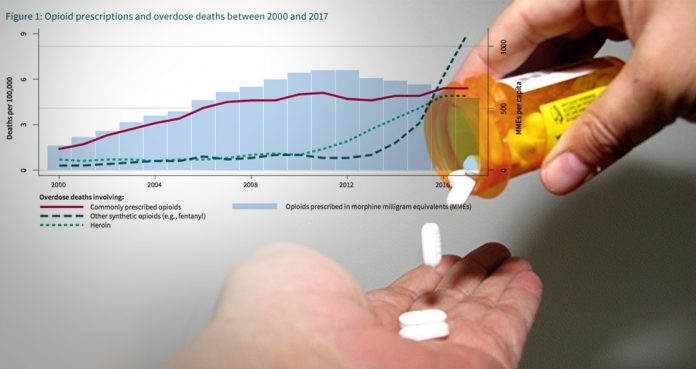A new study, published in JAMA Internal Medicine, has found that poor or fading economic opportunity has a key role in the ongoing opioid epidemic in the United States.
Researchers at the Perelman School of Medicine at the University of Pennsylvania and Massachusetts General Hospital have found that closing local automotive assembly plants could lead to an increase in deaths from opioid overdoses.
Lead study author Dr. Atheendar Venkataramani of Penn Medical Ethics and Health Policy said, “Major economic events, such as plant closures, can affect a person’s view of how their life might be in the future.”
“These changes can have a profound effect on a person’s mental well-being, and could consequently influence the risk of substance use,” he added. “Our findings confirm the general intuition that declining economic opportunity may have played a significant role in driving the opioid crisis.”
The researchers looked at the number of deaths related to opioids between 1999 and 2016 in 112 counties near major automotive manufacturing plants. They noted each plant’s location and the closing date.
During the 17-year study period, 29 manufacturing plants were closed. And five years after the plant closure, the mortality rate due to opioid overdose increased to 85 percent.
The study was able to find a large association between plant closures and an increase in opioid overdoses, but the researchers said the plant closures were not the only cause of the opioid crisis. They noted that opioid prescription rates were also at the forefront of the crisis.
Dr. Venkataramani explained, “Our results are most relevant for the worsening population health trends in the industrial Midwest and South, regions that have experienced some of the largest increases in opioid overdose deaths and in which the automotive production and other manufacturing industries have long been economically and culturally significant.”
“While we as clinicians recognize and take very seriously the issue of overprescribing, our study reinforces that addressing the opioid overdose crisis in a meaningful way requires concurrent and complementary approaches to diagnosing and treating substance use disorders in regions of the countries hardest hit by structural economic change,” he added.
Senior study author Dr. Alexander Tsai said, “Until we can achieve structural change to address the fundamental drivers of the crisis, there are some health care system and health policy changes that can be implemented immediately.” “There is an urgent need to rapidly lower the threshold for accessing evidence-based treatment for substance use disorders, for example, at the level of state Medicaid policy and private payor utilization management,” Dr. Tsai added.























